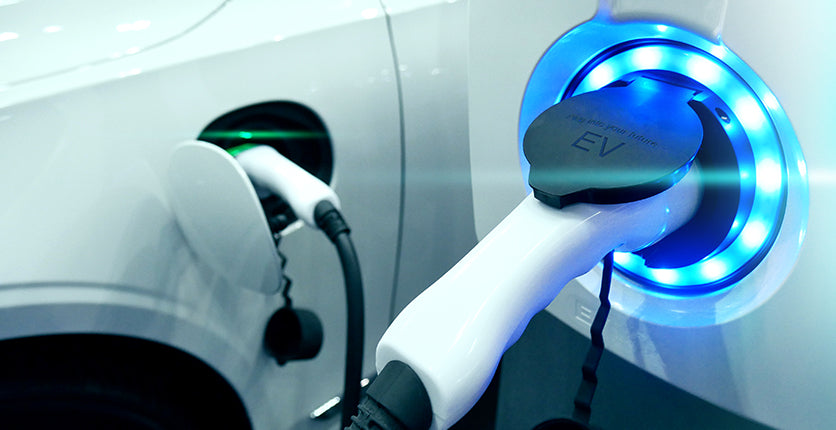Introduction
Electric vehicles are gaining traction in the marketplace, and more people are considering them as an option for their next car. One of the main concerns about EVs is how much it costs to charge them. You might think that you'll pay more for electricity than what you're currently paying for gasoline, but that's not necessarily true! Read on to learn more about charging costs and how they vary based on your car's battery size, the time of year and other factors.
How much does a full charge cost?
The cost of charging your car is based on how much electricity you use and how much time you spend charging. The more expensive the charger, the faster it will charge your vehicle and the less electricity you need to use.
There are two types of chargers: fast-charging (DC) stations and level 2 (AC) home chargers. DC stations can recharge an electric car in 20 minutes or less; however, these stations are not available everywhere yet because they require special equipment that's expensive to install at gas stations or other public locations like restaurants or shopping centers. Level 2 home chargers take longer but are far more common because they're cheaper than DC stations--you can buy one for about $500-$1,000 depending on where you live--and work just fine for most people who have access to an outlet at home or work anyway!
How much does it cost to charge your car at home?
The cost of charging your EV at home varies depending on your electricity rates. According to EnergySage, the average cost per kilowatt hour (kWh) is around $0.15, which means that if you charge an electric vehicle for 30 minutes, it will cost about $0.50 to fully charge it. The more frequently you drive and how far you drive each day can have an impact on what kind of savings these cars offer over traditional vehicles; however, some studies show that owning an EV can still save money even after factoring in monthly costs like charging stations or electricity bills.
How long does it take to charge an EV battery?
The charging time for an electric vehicle (EV) battery depends on the car, the battery and the charger.
The typical charging time for an EV is between 3-6 hours with a Level 1 charger (110 volts), 6-10 hours with a Level 2 charger (220 volts) and 30 minutes to several hours with fast chargers that use DC power from 480V AC power lines.
Does it cost more to charge in the winter?
The answer is yes, it does cost more to charge your EV in the winter. Why? Because electricity is more expensive during this time of year.
And why is that? Well, there's a few reasons:
-
Electricity usage goes up during winter months because people use more heating and cooling systems. This means that people are using their EVs less often because they're inside their homes instead of driving around town or on long trips with their cars (and even if they do go out for a drive, it may not be as long). So when you do plug in your car at home overnight or during the day while at work--which would normally be when you'd want to charge your car--it will take longer than usual due to increased demand for power by all those other homes charging too!
Is there a cheaper way to charge than what's listed here?
There are several ways to charge your EV more cheaply than what's listed here.
-
Use a lower power charger. Some public charging stations only offer Level 1 or Level 2 chargers, which can take anywhere from 4-8 hours to fully charge your car. If you have access to a higher power charger (Level 3), it'll take less time--and cost less money per charge--to get back on the road again!
-
Charge at night and after work/school. Charging overnight will save you money because electricity rates are lower then than during peak times such as mornings and evenings when people tend to run their air conditioners more often during hot seasons like summertime in Arizona where we live now but used to live in California before moving here so maybe we'll go visit sometime soon? Either way though if there's no other option available then yes definitely try using one of these methods instead."
EV charging can vary based on your car, how much electricity you use and the time of year.
Electricity rates vary by state and utility. These factors include:
-
Time of day (peak vs off-peak)
-
Seasonality (summer vs winter)
-
Location (urban vs rural)
In addition to these considerations, there are many other factors that affect how much you'll pay for an EV charge. These include:
-
The type of car you drive--some EVs require more electricity than others due to their size, speed and battery capacity; * The type of charging station used--some stations require more power than others; * Your electric company's rate structure and incentives or subsidies available through government programs like Clean Cities grants
Conclusion
So, how much does it cost to charge your EV? We've covered everything from home charging stations to public charging stations. The good news is that EV charging is getting cheaper and more accessible every day, but there are still some factors that can affect the cost of each trip. If you're looking for ways to save money on this important part of owning an electric car then check out our guide on finding free or discounted charging stations near where you live or work!
Recommend Reading: Public Charging Memberships Worth the Money in 2025








Share:
How long does a charge last on an electric car?
Is it cheaper to charge an EV?